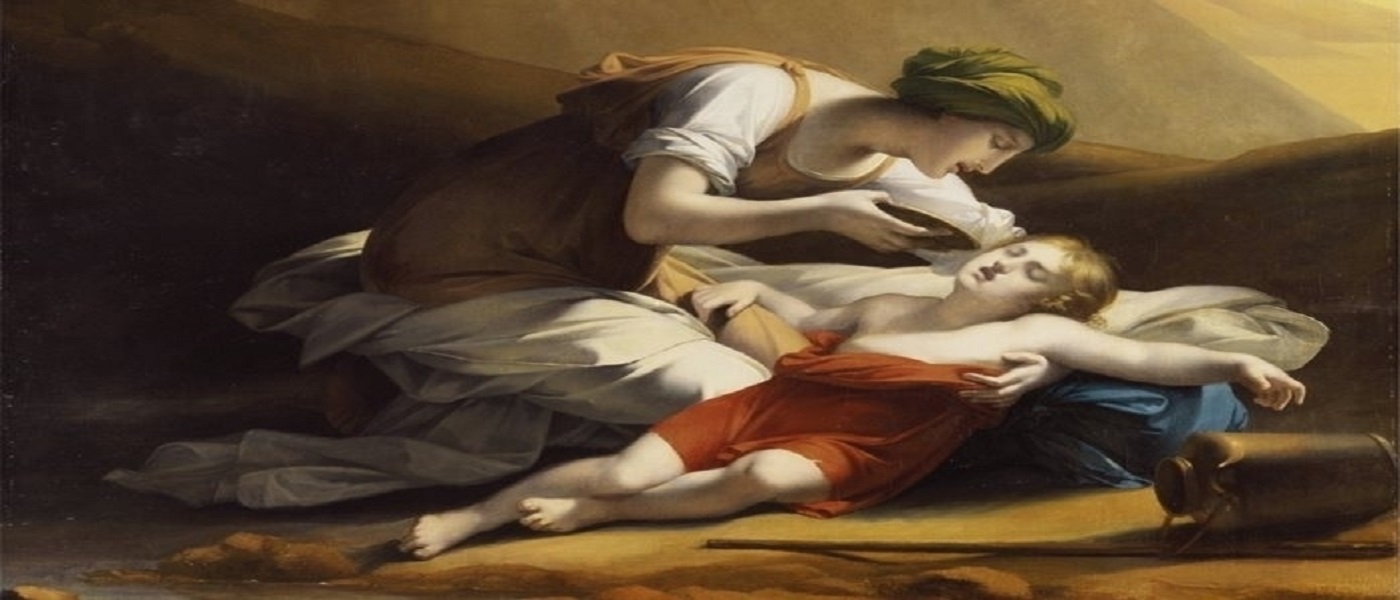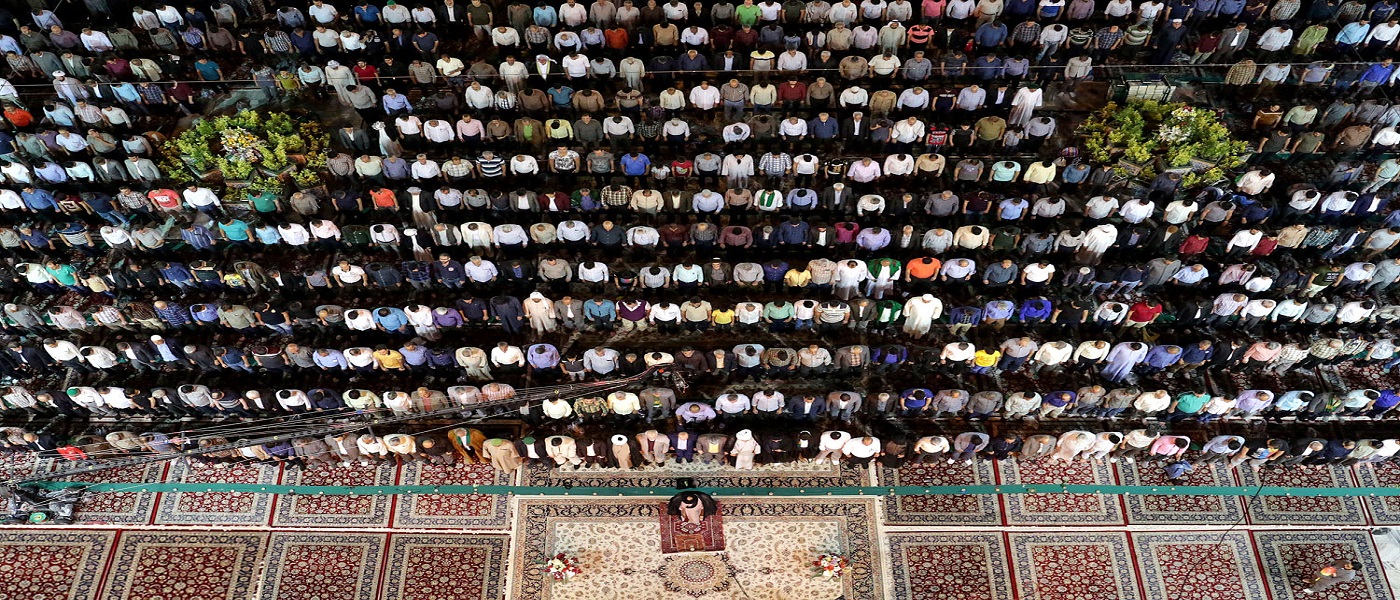

4 Facts that Proves Jesus Christ (PBUH) as a Peace-loving Prophet in Islam
One of the most discussed words nowadays among politicians, humanitarians, thinkers, and social researchers is the word peace. It’s one of the favorite ideas among Christians and Muslims. Many of the religious activists try to publicize peace as a social manner and act. Islam, as the last religion of Allah, is a religion of peace, as its name is taken from the word Salaam, meaning peace in Arabic.
On the other hand, Jesus Christ (PBUH) is the other most-followed prophet in the world and one of the chosen ones in Allah's regard. But what is the stance of Islam toward Jesus Christ (PBUH)? Does Islam believe Jesus (PBUH) to be a peace-loving prophet? Here, we are going to bring you some verses of the Holy Quran in praise of Jesus Christ (PBUH) and his peace-loving character.
1. Jesus Christ (PBUH); A Prophet of Mercy
Believing in a peace-loving God, he treated all the people, whether innocent or sinful, young or old, with mercy and kindness. His amiable attitude not only included human beings but also animals whom he deeply cared for. Thus, wherever he went, he brought peace and blessing to the people, as he puts in this verse of the Quran:
“He has made me blessed, wherever I may be” (19:31)
2. Jesus Christ (PBUH); An Exemplar of a Dutiful Child
The holy Quran always refers to Jesus (PBUH) as the embodiment of a dutiful and devoted child concerning his mother, Saint Mary. When it narrates the story of his birth and the disbelief of the Jewish sages, the Quran says that Jesus (PBUH) started talking while he was a newborn in his mother’s arms. He told everyone about the mission Allah had given him and then said:
“…He has enjoined me to [maintain] the prayer and to [pay] the zakat as long as I live, and to be good to my mother, and He has not made me self-willed and wretched.” (19:31-32)
Accordingly, one of the missions Allah has given Jesus (PBUH) is to be kind and respectful toward his mother, which is one of the manifest signs of a peaceful and loving character.
3. Jesus Christ (PBUH); A Prophet of Wisdom
When Jesus Christ (PBUH) started spreading the message of Allah to human beings, he began to advise people to be truthful followers and described his mission as follows:
“When Jesus brought those manifest proofs, he said, ‘I have certainly brought you wisdom, and [I have come] to make clear to you some of the things that you differ about. So be wary of Allah and obey me.” (43:63)
Based on this verse, he was there to clarify the ambiguities and to bring wisdom. And that was all he did; he never used anything, but words of Allah and miracles inspired him to lead people toward what is right.
4. Jesus Christ (PBUH); The Righteous Servant of Allah
Virgin Mary was about to find out about Allah’s blessing upon her in bestowing her with a son, without any man touching her and the angels said:
‘O Mary, Allah gives you the good news of a Word from Him whose name is Messiah, Jesus son of Mary, distinguished in the world and the Hereafter and one of those brought near [to Allah]. He will speak to the people in the cradle and adulthood and will be one of the righteous. (3:45-46)
Also, in another verse of the Quran, Allah refers to Jesus Christ (PBUH) besides other prophets as such:
“And Zechariah, John, Jesus, and Ilyas—each of them among the righteous.” (6:85)
Allah refers to Jesus Christ (PBUH) in the verses above, as his word and one of the righteous ones. But who is a Righteous person? A person characterized by, proceeding from, or following accepted standards of morality, justice, or uprightness and virtues [1]. So, a righteous person is one who is upright, and free from sins or guilt, which ultimately leads one toward peacefulness.
Finally, the Holy Quran and Islam, as the religion of peace, admire prophet Jesus (PBUH) as the word of Allah and send peace and blessing upon him. In this verse of the Quran, Jesus addresses himself and says:
“Peace to me [Jesus] the day I was born, and the day I die, and the day I am raised alive.” (19:33)
Just as Prophet Muhammad (PBUH&HP) who, according to the Quran, was sent as a mercy to humankind (21:107) and perfect moral virtues, Jesus Christ (PBUH) was also sent to accomplish the same mission; as the prophets before him were also after spreading this peaceful message. Thus, Muslims who believe in all the prophets as the best role models, do not doubt in the peace-loving character of Jesus Christ (PBUH), the blessed son of Mary.
References:
- Collins English Dictionary – Complete and Unabridged, 12th Edition 2014 © HarperCollins Publishers 1991, 1994, 1998, 2000,3,6,7,9,11,14
Share This Article

Hagar: A Traveller to Allah
Hagar, who left behind a sainted child that later became the forefather of the Holy Prophet Muhammad (PBUH&HP), is the symbol of a devoted and obedient woman to God. Although her name is not directly mentioned in the Quran, in many Islamic quotes (hadiths) she is known as an example of faith in Allah that makes her a role model for every Muslim.
Ishmael (AS)’s Birth
Being barren, Sarah the prophet Abraham(AS)’s wife, told him to marry her housemaid, Hagar, as a second wife. After Hagar gave birth to a blessed child, Ishmael (AS), Allah ordered Abraham (AS) to emigrate from Egypt to Mecca with Hagar and infant Ishmael (AS).
With the guidance of Gabriel, they stopped to camp at a bleak, isolated place with a limited supply of food and water. That was the land on which the Kaaba was later built. Soon after this, Abraham (AS) received another command from Allah to leave his beloved wife and child behind in that harsh condition.
Abraham (AS) submitted to the command of Allah and patiently tolerated this separation while praying for them: “Our Lord! I have settled part of my descendants in a barren valley, by Your Sacred House, our Lord, that they may maintain the prayer. So make the hearts of a part of the people fond of them, and provide them with fruits, so that they may give thanks” (14:37).
Hagar's Faith Was Paid
At that time some people would come to Mecca to pray, but no one inhabited there because of the unbearable living conditions[1]. Believing in divine predestination and knowing that God had not forgotten them, Hagar endured the hard conditions until she ran out of food and water.
Seeing her child dying of thirst, she ran to the top of Mount Safa hoping to find some water, but she found nothing. So she continued her search and ran to Mount Marwa instead, again in the hope to find some water. She continued and ran seven times between these two mounts, Safa and Marwa, with faith in divine mercy.
She had such trust in her God that she did not give up searching for water even for a moment. Then, she noticed water bubbling up from somewhere under Ishmael (AS)’s feet. Hagar’s patience and sincere efforts were paid; they survived.
Later on, the place where the water came to the surface was named Zamzam Spring. This act of Hagar became a big sign (called sa’i) for billions of Muslims through the ages, especially during Hajj, reminding them of the pure struggles of a faithful woman and the subsequent Divine Favour [1]. Hagar showed a deep sincerity to God by attesting with certainty that Allah had not abandoned her and her child.
Second Divine Trial For Hagar
After Zamzam water sprang out from the Earth, a tribe who lived in the vicinity of Mecca realized and came to settle there. Abraham (AS)’s prayer was responded to; Hagar and her son were not alone anymore. He came to visit Hagar and Ishmael (AS) time by time. As he knew the capabilities and merits of Hagar, he entrusted the training and education of Ishmael (AS) to her mother.
Some years later when Ishmael (AS) became 13 [2], another divine test awaited him and his parents; Allah ordered Abraham (AS) to sacrifice Ishmael (AS): “When he was old enough to assist in his endeavor, he said," My son! I see in a dream that I am sacrificing you. See what you think." He said," Father! Do whatever you have been commanded. If Allah wishes, you will find me to be patient” (37:102).
The full story is mentioned in the chapter (Surah) Al-Saaffat (verses 102-111) in the Quran. Growing up with the religious teachings of her mother, Ishmael (AS) obeyed Allah’s will. But it was no more than a trial for both Ishmael (AS) and Abraham (AS) in which they succeeded: “This was indeed a manifest test, Then We ransomed him with a great sacrifice, and left for him a good name in posterity” (37: 106-108).
Rested in Peace, Close to the Kaaba
Hagar was buried beside the Holy Kaaba after her demise. Her grave is located in Hijr Ishmael; a crescent-shaped area immediately adjacent to the Kaaba. Every Muslim who performs Hajj is obliged to circumambulate around it; the place where Abraham (AS) had constructed a shelter for Ishmael (AS) and Hagar[3] before he left them in that desert. This is how Allah rewards his sincere obedient believers.
References:
- http://en.rafed.net
- F. H.Tabarsi, "Majma' al-Bayan", vol. 8, p. 321.
- http://www.hawzah.net
Read More

What Is Friday Prayer And How Is It Performed?
“O believers, when the proclamation is made for prayer on the Day of Congregation (Friday), hasten to God's remembrance and leave trafficking aside. That is better for you did you but know.” (62:9)
What do you think as you see a crowd of people gathered in one place, in regular rows? Acting altogether, simultaneously and in a well-organized manner? And they are dressed beautifully and smell good? Especially when they are hundreds and thousands? I see this as a glorious union. You can find this kind of forgathering in a Friday prayer.
Congregations in Islam
Islam emphasizes three congregations: Haj which is held annually in a large scale, weekly Friday prayers and daily congregational prayers. Hajj is God’s plan to bring huge amounts of people together in Mecca, to show the power of Islam and unite the Muslims; besides its specific spirituality. Imam Baghir (AS), the fifth Imam, mentions Hajj as one of the five bases on which Islam is founded. [1]
Friday prayer is of such high importance and value that when a person said to Prophet Muhammad (PBUH&HP) that he has got ready several times to go to Hajj but has not managed to, our prophet (PBUH) told him to attend Friday prayer which is Hajj of the poor. [2]
These show that Friday prayer has many characteristics of Hajj and can be influential in the same way, on a smaller scale though.
Friday
In several narrations from the last prophet (PBUH&HP) and his household, Friday is known as the best night and day of the week. It is recommended to perform full ablution (qusl), wear your best clothes, cut nails, brush your hair and beard, trim mustaches and wear perfume on this day. One of the main reasons for these recommendations is getting ready to show up among Muslims in Friday prayer.
Friday prayer (Salat al-Jumu’ah)
Friday prayer (Salat al-Jumu’ah) is an Islamic ritual. It begins with two khutbahs (orations) by Imam al-Jumu’ah in which he advises people toward observing virtue. In the first one, he elaborates on religious concepts. In the second one, he discusses political and social matters of Muslims’ community.
Then Friday prayer is performed in congregation. It consists of two rak’ahs (parts). Each rak’ah has a qunut (raising hands); in the first rak’ah before ruku’ (bowing), in the second one after ruku’. Friday prayer and the two orations before that are a substitution to the four-rak’ah Salat al-Zuhr. After that, a four-rak’ah Salat al-Asr is performed. Please note that:
- Friday prayer cannot be performed individually.
- Except for the Imam, there should be at least four people for a Friday prayer to be held. [3]
Friday prayer; obligatory or recommended?
Prophet Muhammad (PBUH&HP) says: “Surely God-may be blessed and exalted- made Friday prayer obligatory for you. If someone abandons it in my life or after my death, aiming to belittle or deny it, God will distress them and won’t bless them in their work; and know! their prayer is not accepted, and know! their alms-tax (Zakat) is not accepted; and know! their Haj is not accepted; and know! their good deed is not accepted until they repent.” [4]
In an ordinary situation, i.e. the presence of innocent Imam, Friday prayer is a determinate duty. That is the same duty should be done and it cannot be replaced by another one. But now that the twelfth and last Imam, Mahdi (AS) is absent, Friday prayer is a selective duty. Which means you can choose between performing Friday prayer or Salat al-Zuhr. [5]
Yet, considering its profits, Muslims should pay special attention to Friday prayer.
Why Is Friday Prayer Highly Recommended?
Imam Reza (AS), the eighth Imam, states the importance of Friday Prayer and its Khutbahs comprehensively: “Because Friday is a public rendezvous, khutbah on Friday has been arranged to be a means for governor to advise people and to encourage them to obedience and to warn them of disobedience and to inform them of God’s will about their interest of religion and world and let them know of what has happened to them in the world and of events in which they have disadvantage or advantage.”[6]
Reason of Repetition
- We are forgetful beings. We need to be advised repeatedly so that we may not neglect the afterlife, miss the path, and forget necessities of the society.
- See these daily and weekly prayers as the stages of a ladder. By each prayer, we should take a step upwards. By praying, we are communicating with God and by practicing in a regular program, we can enhance the quality of this communication.
References:
- Al-Kafi, v.2, p.18
- Wassail al-Shi'a, v.7, p.300
- Khamenei.ir
- Wassail al-Shi'a, v.7, p.302
- Khamenei.ir
- Wassail al-Shi'a, v.7, p.344
Read More

